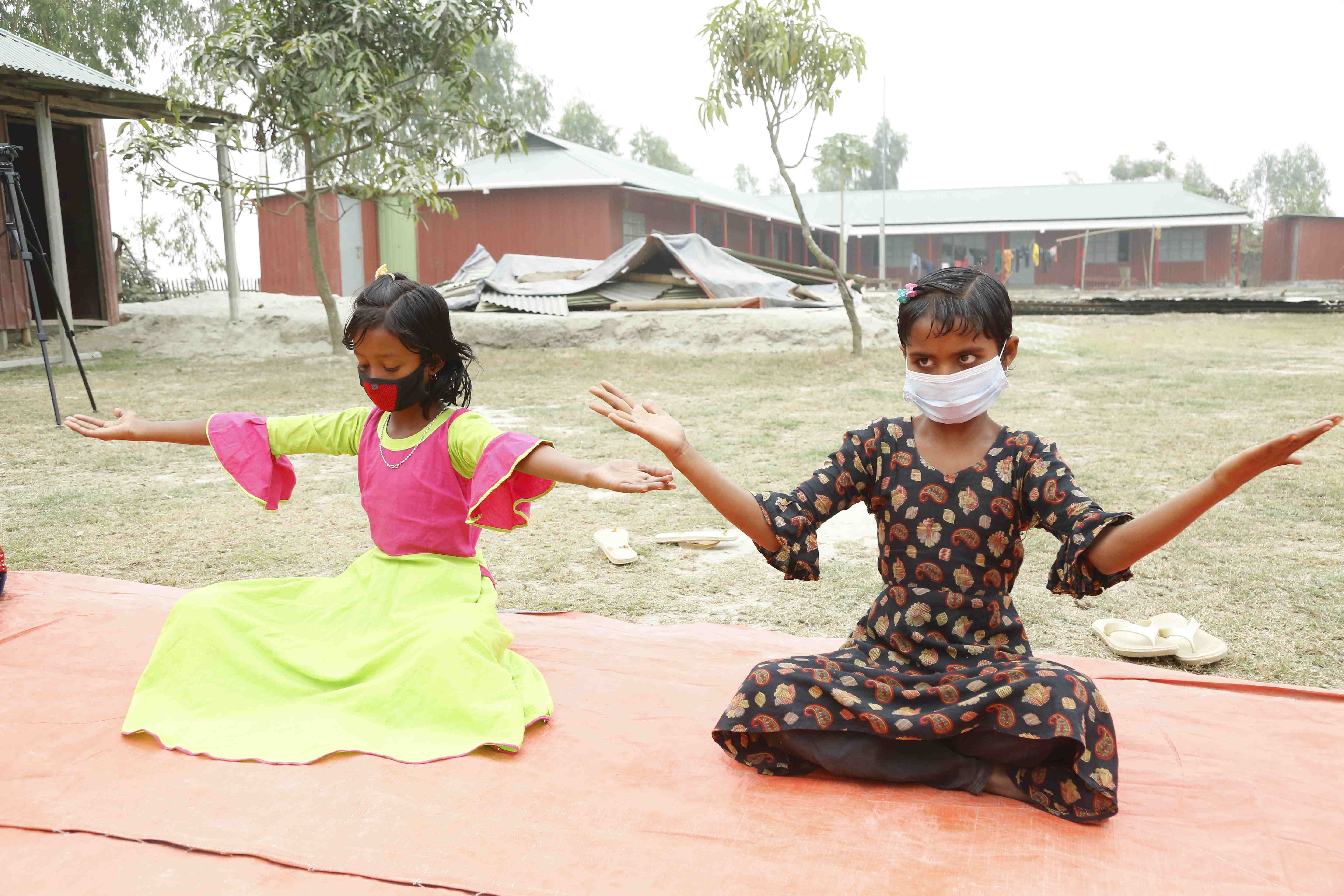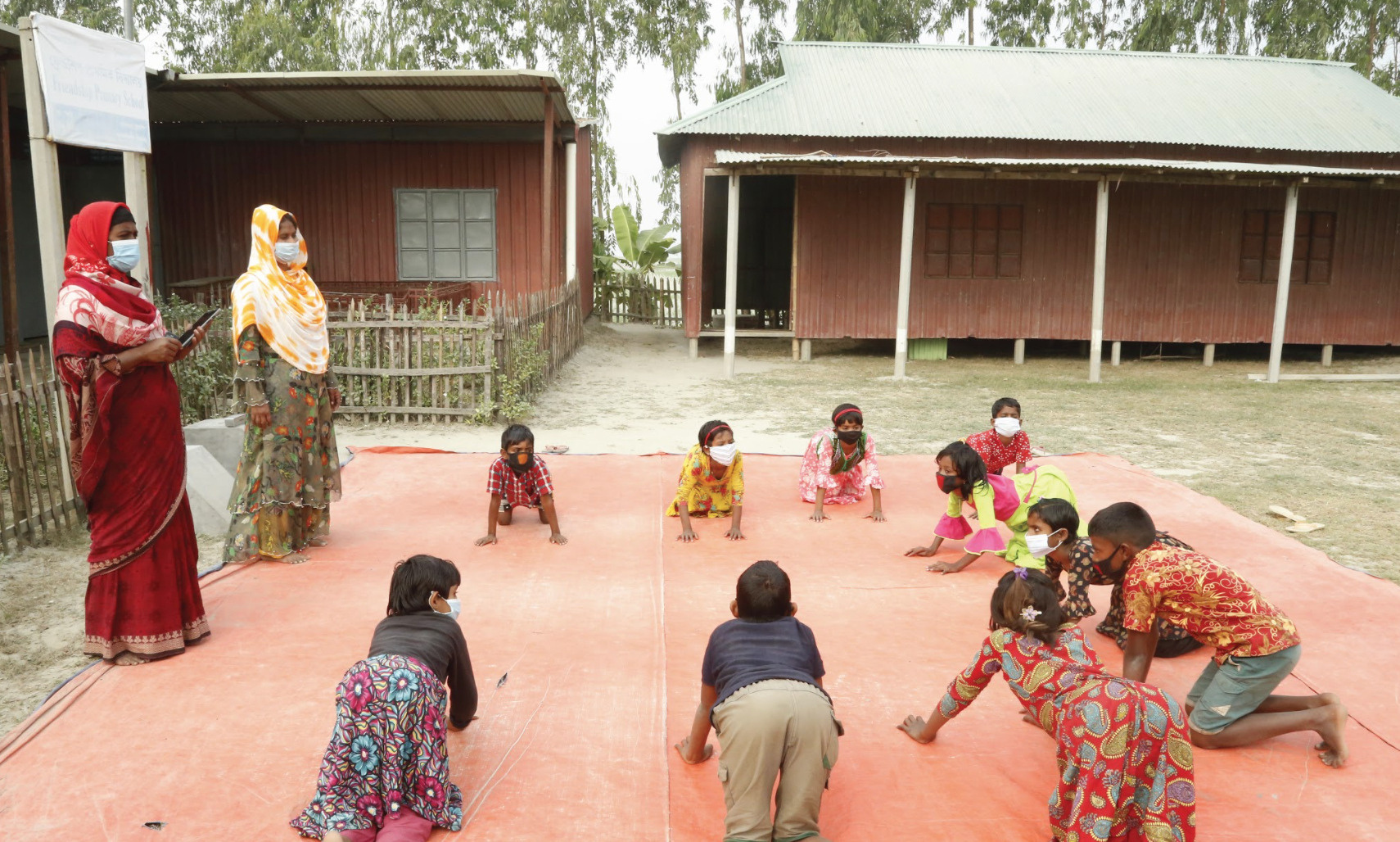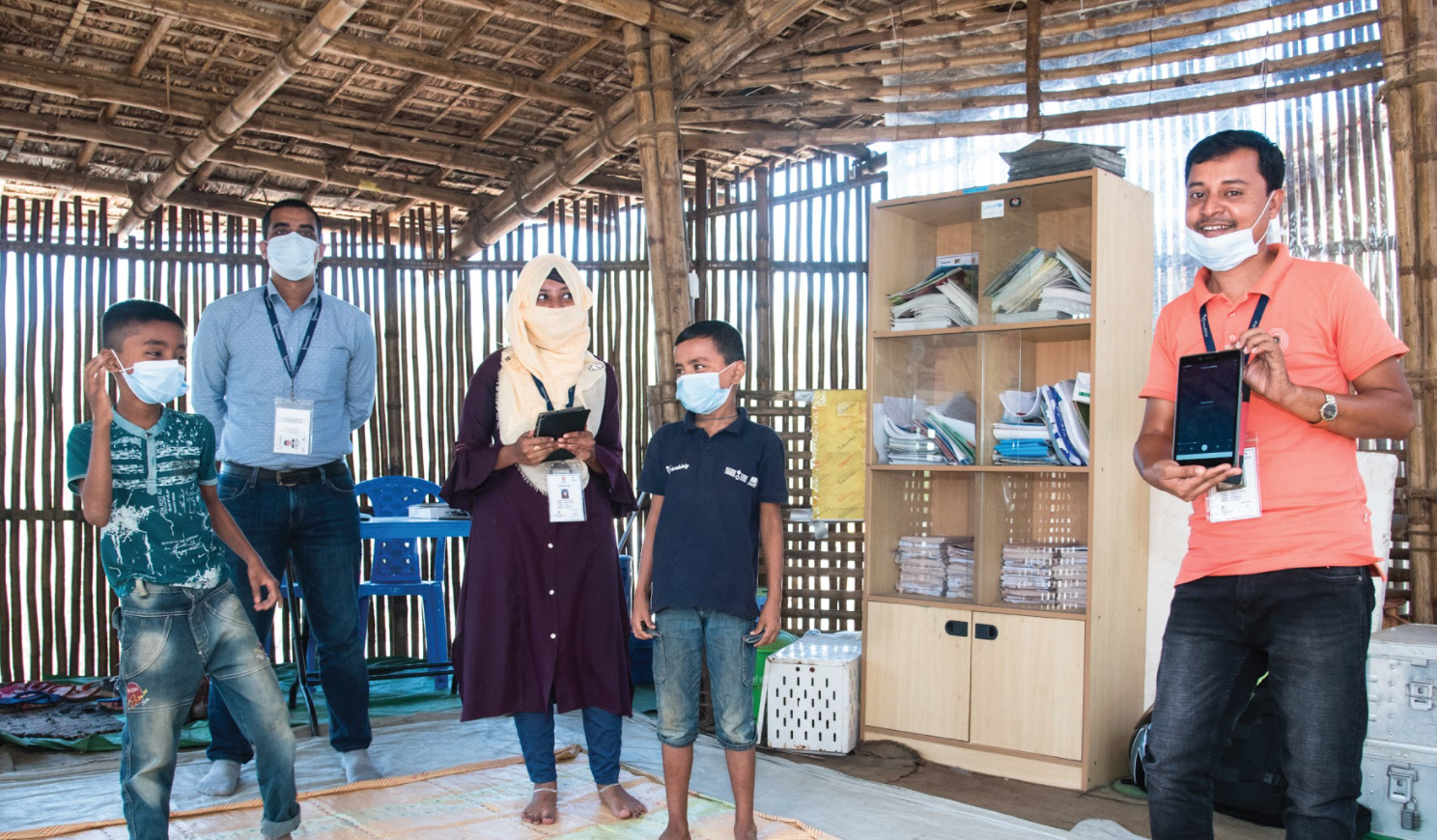Amal Alliance fulfills its pledges and remains committed to the psychosocial well-being of children
Amal Alliance fulfills its pledges and remains committed to the psychosocial well-being of children
Although much of the world has changed in light of the COVID-19 pandemic, the need for psychosocial support has been more pressing than ever, especially among forcibly displaced children. The closures of schools and community centers, in addition to mandatory quarantines, added stressors to households and interrupted optimal child development. This is especially true for already vulnerable children, including children with disabilities, who are at increased risk of infectious disease, physical and emotional maltreatment, mental distress, and violence. At the onset of the pandemic, Amal Alliance quickly pivoted to ensure that its Global Refugee Forum pledges to prioritize psychosocial support and strengthen the capacity of teachers and caregivers remained steadfast.
Prior to the pandemic, Amal Alliance was employing its Rainbow of Education Toolkit in various locations including Greece, Lebanon, and Turkey. The Rainbow of Education is a six-month curriculum that uses six colors of the rainbow to address different themes each month. Each color corresponds to a different theme that links to a social-emotional competency that can be introduced to cultivate and nourish a child’s early childhood development. Both the Rainbow, and its early childhood development adaptation - the Mini Rainbow - were highlighted for their best practices and skillful application in refugee settings. In December 2019, at the inaugural Global Refugee Forum in Geneva, UNHCR named the Rainbow of Education one of “the most promising holistic practices”.
Pivot with COVID-19 Pandemic
When the COVID-19 pandemic hit, all of the Alliance’s in-person classes were halted. The Alliance understood this complex issue would require an equally comprehensive response, and thus spearheaded a COVID-19 Emergency Response Consortium which included Karanga, Learning in Times of Crisis: Essence of Learning, Qatar Foundation International, Salzburg Global Seminar, and experts from the field to consolidate and build off of their respective expertise.
“We Are In This Together,” a podcast series was produced, addressing the needs of children during the onset of the pandemic, provided simple, but meaningful activities that reinforce emotional wellbeing. The podcasts provide suggestions for daily activities that caregivers can use to enhance self-resilience and explore possibilities to support themselves and children of all age groups and learning stages.
Delivered in four languages to beneficiaries via WhatsApp, the series quickly gained traction and was shared with over 17 global platforms whose networks reached 543 organizations. By April 2020, an estimated 160,000 users had benefited from the programme.
Seeing the positive feedback and engagement, Amal Alliance posted its solution to OpenIDEO to share best practices with colleagues and peers. The Alliance was delighted to reach the Top 20,and to be invited to apply to UNHCR’s Humanitarian Education Accelerator COVID-19 Challenge.
Given its innovative approach, Amal Alliance was selected as a finalist for UNHCR’s Humanitarian Education Accelerator COVID-19 Challenge to create an education in emergencies prototype. An adaptation of the Rainbow Toolkit using the podcast modality, “Colors of Kindness”, was born.
Colors of Kindness

Colors of Kindness (Colors) is an innovative social and emotional learning (SEL) programme that provides psychosocial support (PSS) in Education in Emergencies (EiE). It is an inclusive hybrid approach to classroom instruction aimed to help students cope with the effects of the pandemic and ease their transition back to classroom instruction. It uses a holistic approach designed to help children grow their social and emotional competencies, such as self and social awareness, self-management, and responsible decision making. It utilizes a combination of audio instruction and interactive digital materials available as Open Educational Resources (OER). Its tech partners, such as Learning Equality, provide a Learning Management System that works offline for children with limited to no connectivity. Through consultations with children, teachers, parents, local implementing organizations, education clusters, and stakeholders, Amal Alliance uses a participatory approach during the planning, implementation, monitoring, and feedback phases.
Its disability inclusive model incorporates safe and integrated service delivery that strengthens the capacity of local actors to use inclusive methods and tools that help deliver mental health and psychosocial support (MHPSS) to those living with disabilities in emergency and crisis settings. Colors can be implemented in both formal and informal settings and will ensure that children can safely access not just academic instruction, but also SEL.
During the pandemic, the programme was piloted in Bangladesh in the fall of 2020 with a cohort of Rohingya refugees in Cox’s Bazaar, and children of the host community in public schools ages seven to twelve. The quantitative and qualitative data showed many positive effects, including a readiness and desire to initiate and return to learning. Most notably, a dramatic 16.5 per cent increase of social and emotional competencies in the children was shown, as well as a 99 per cent increase in mood, positive outlook, and prosocial behavior. What’s more, SEL learning had a positive effect on academic outputs too. The profound effect that the pilot highlighted in only 10 weeks’ time, served as a strong indicator of the positive impact that can be generated if aligned to a longer period, and it has served as a catalyst for the evolution of the programme.
Colors of Kindness is meant to enhance academic outputs and increase the integration of displaced children in the host community by aligning with the national school system. This integration serves to foster cultural understanding and augment peace education. While it was born out of the COVID-19 pandemic, it can be employed to accelerate learning during a transition, or simply to enhance learning outputs at any stage of the academic year.
By partnering with local organizations, Amal Alliance trains local leaders to teach refugee children and disenfranchised youth of the host community, building bridges of peace and tolerance. Through alignment with national systems, it aims to integrate children into their host community and promote social cohesion.
No Internet, No Problem
Seeing a growing divide for learners with limited to no access to connectivity, Amal Alliance formed a partnership with Education Above All's (EAA) Innovation Development Directorate. This enabled the Alliance uphold its pledge to encourage open quality educational resources for refugees by providing an offline version of the Colors of Kindness programme for children ages six to fourteen via a Social & Emotional (SEL) Learning Workbook that forms part of EAA's Learning Packages, available on EAA’s renowned Internet Free Education Resource Bank.
The Alliance is excited to continue spreading Colors of Kindness through its most recent pilot project in Greece that is being led alongside the Ministry of Education and Religious Affairs of Greece and six NGOs across the country. Not only will this project provide psychosocial support to forcibly displaced and host community children and support teachers and caregivers, but it will also provide evidence-based research for scalable quality holistic learning that supports well-being during and post crisis. The findings will contribute to the evidence-base for SEL programmes in EiE, filling in a large gap in the research. An outcome report will be created by the EASEL Lab of the Harvard Graduate School of Education, and findings will be presented during the UN General Assembly meeting in 2022.
If the pandemic has taught us anything, it’s that well-being is directly tied to learning. If we work to address the effects of toxic stress and adverse experiences in childhood, we can mitigate the vicious cycle of trauma and violence from producing a rippling effect on future generations. What is clear is that this growing problem cannot be addressed by any one organization or one solution. Which is why Amal fervently believes in the spirit of collaboration. The Global Compact on Refugees promotes this and calls for a multi-stakeholder and partnership approach. Bringing forth the comparative advantage and core competencies in which organizations specialize, is the way to address this incredibly complex issue, which is often compounded by multiple crises, and enables everyone to work towards a more sustainable solution. The Alliance calls on the global community to join this effort to turn this time of crisis into one of hope, promise, and possibility for our children in these unprecedented times.






